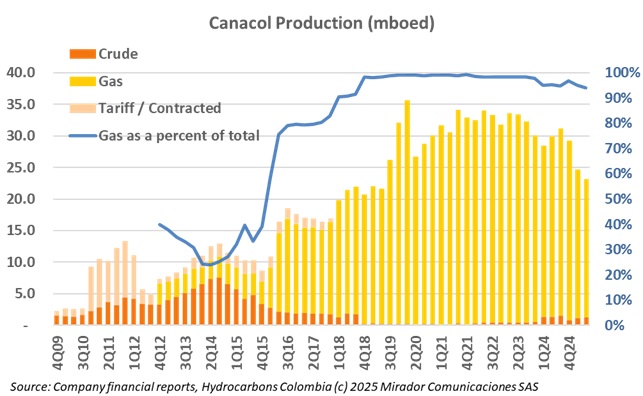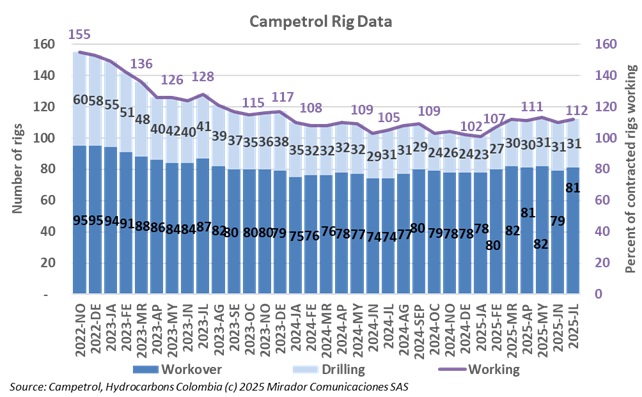Promigas, through its subsidiary Surtigas, entered into a strategic alliance with Petromil to launch a new 1.4 MWp solar project on Colombia’s Caribbean coast, marking another step forward in the country’s energy transition.

Ecopetrol (NYSE: EC) confirmed that it is actively exploring inorganic growth opportunities as talks with Canacol Energy (TSX: CNE) gain momentum, potentially leading to one of the most significant energy deals in Colombia in recent years.
Ecopetrol announced the expansion of natural gas coverage in La Guajira, delivering 3,000 new household connections that will benefit more than 11,000 people, many of them in vulnerable conditions.
President Gustavo Petro has once again turned his criticism toward state oil company Ecopetrol (NYSE: EC), this time alleging that 10% of the gasoline it refines ends up in the hands of criminal organizations for cocaine production.
The administration of President Gustavo Petro, through the Ministries of Mines and Energy (MinEnergia) and Finance (MinHacienda), is preparing a new five-page resolution that seeks to modify the pricing methodology for ethanol, a fuel additive commonly used to boost gasoline octane levels and reduce emissions.

The Colombian Chamber of Goods and Services (Campetrol) reported rig information for July 2025.
Natural gas imports have become a major business opportunity in Colombia since the country lost energy self-sufficiency in December 2024. With limited resources to meet household demand, the government is now tracking six projects aimed at expanding import capacity, beyond the Cartagena regasification terminal that has been operating since 2016.
Colombia’s propane sector is moving to expand import capacity from the Caribbean as the country faces a tightening energy supply, revealed the Colombian Propane Association (Gasnova).
Colombia’s State Council ruled against Ecopetrol (NYSE: EC) and Oleoducto de los Llanos Orientales S.A. (ODL), confirming their responsibility for damage to a rice crop during the construction of an oil pipeline in Casanare in 2009.

Ecopetrol’s deteriorating Net Income continues to consume (virtual) column inches in the Colombian business press. Our perhaps counter-to-the-current view has been that short-term financial performance is the wrong place to look for what might be wrong with the NOC. This week we dive deeper into the qualitative comments we made last time.